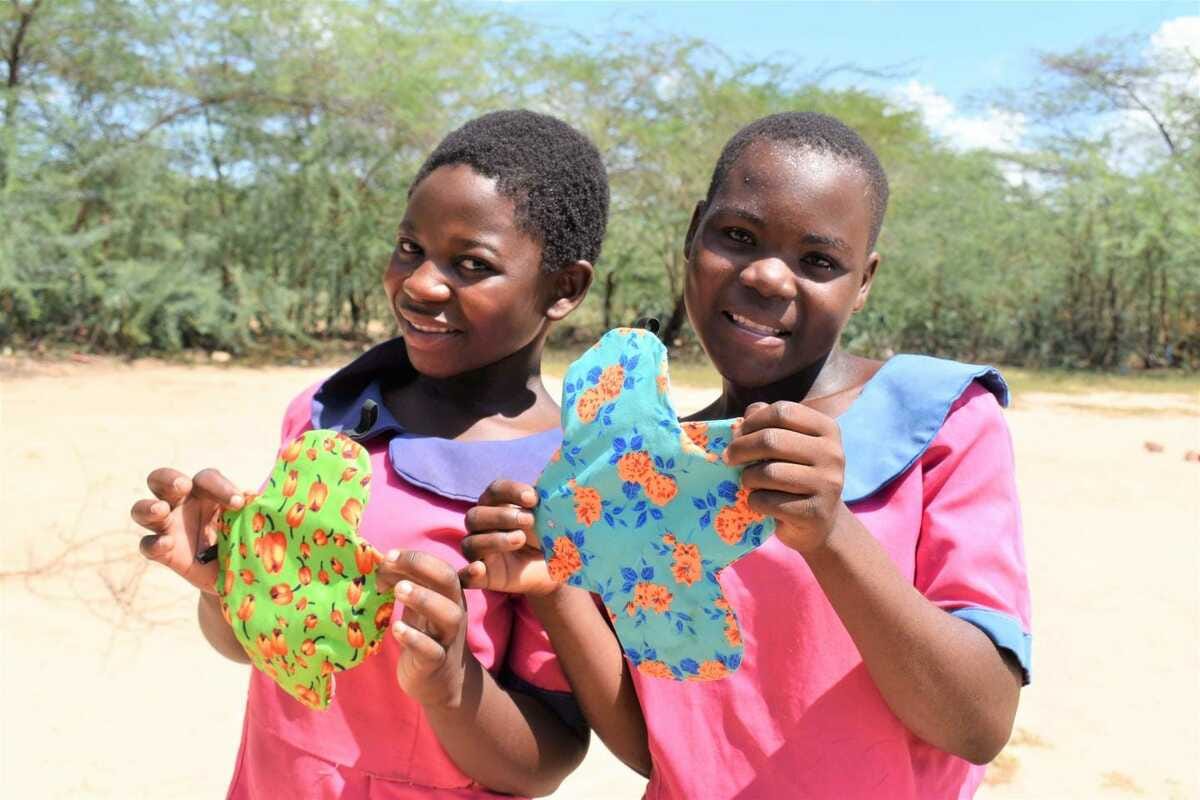
MALAWI: We are in the 16 Days of Activism Against Gender-Based Violence, an annual international campaign that kicks off on 25 November, the International Day for the Elimination of Violence against Women, and runs until 10 December, Human Rights Day.
Since day one of the 16 days, the spaces are on it, giving advocacy messages on the need to end GBV.
However, the focus seems to be more physical, we take a paradigm shift and look at GBV from an economic and policy view: let's discuss “Period Poverty”.
It is common knowledge that girls and women experience menstruation monthly and it needs good sanitary resources to manage the natural sanctification.
Women in urban areas although not all have access to sanitary pads and the hemorrhage does not affect their normal social activities like going to school.
However, disposing of used pads remains a challenge due to the lack of incinerators in schools including the universiti’s hostels.
In Malawi managing menstruation rural remains a daunting task as school-age girls walk long distances to and from school and also lack wash and changing rooms.
The 2014 UNESCO report revealed that an estimate of one in ten girls in Africa misses school when they are on their period, and others run the risk of infection from using unhygienic products, or not changing them often enough.
Based on the snap research done by the paper, period poverty a condition whereby women and girls cannot afford proper sanitary products or do not have the information and facilities to use them properly remains a challenge in Malawi.
The 2020 BMC Journal titled Acceptability of menstrual products interventions for menstrual hygiene management among women and girls in Malawi found out that most girls use a rag from the old cloth, which is folded into a pad and looped about a string around the waist and kept in a place with underpants.
Others also use newspaper and feathers to help themselves during menstruation.
These all happen because they cannot afford sanitary pads, with the cheapest pack going at K750 including 16 percent VAT.
Importantly, experts in menstrual hygiene management are scaling up efforts to end up period poverty by making reusable sanitary pads available in communities by training people on how to do them.
But lack of documented research at the national level and policies and guidelines on menstrual health management dwarfs these efforts because the response is based on international research and literature.
Solutions that will help Malawi to end the period of poverty based on our context are not taken care of.
Apart from making sanitary pads available there is also a need to educate girls and women on how to manage the monthly benedictions and also the general public to break the stigma and taboos that surround menstruation.
For example, some organizations are in the villages teaching girls and women how to make and use reusable sanitary pads to mitigate period poverty that robs a girl an average of 5 days per month as they are not confident enough during this period.
However, you are going to see that the society that is a source of jeers and ridicule when the period's leak on a girl child skirt is left aside.
On top of that projects of making sanitary pads in communities are not sustainable.
When funds dry up, girls and women return to their old ways. Organizations that are distributing reusable pads will always need more funds and donations to sustain this, minus this help these projects will die a natural death.
There is no other better time than now that the Malawi Government come up with concrete solutions for developing and implementing Menstrual Hygiene policies and guidelines to align its works with several legal instruments that the country signed and ratified.
Vision 2063, which is our development blueprint, calls for pro-poor policies and this can be one of them since it will contribute to broad-based development.
Removal of VAT on sanitary pads and making them affordable is key as it will help a lot of girls that miss school due to a lack of sanitary pads.
The 2021 Southern Africa Gender Protocol Voice and Choice Barometer, indicates that Malawi is one of the countries that have neither removed VAT on sanitary ware nor provide free sanitary ware in schools.
Government should also prioritize Water and Sanitation (WASH) in schools which is a challenge right now. In this week’s report on Times Radio, it was observed that girls struggle in government schools because there is no water.
Free and comfortable use of pads needs a hygienic space. Over 646 Government schools have no water in Malawi, this GBV, last year Zodiak had a report where it was noted that many government schools have no changing rooms for girls to change pads while in school, GBV.
As the head of the Department of water and sanitation at Mzuzu University, Dr. Russel Chidya argues, “water is a must” hence schools should have access to clean and potable water.
If government schools do not have clean water, thus a smart way to offer GBV. We need to start thinking of ending period poverty in this country.
We can end the physical violence against women and girls, but if we will not solve menstruation problems, this initiative will be in vain.
We need to fix this nation.